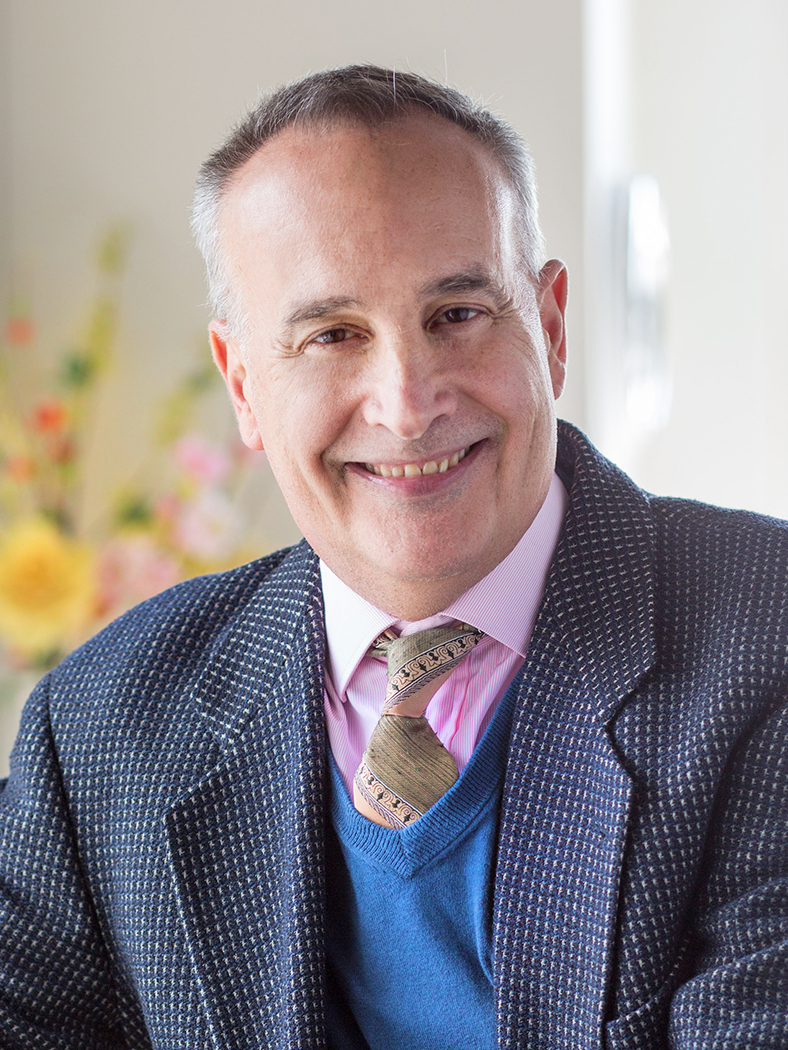CancerCare Social Worker, William Goeren, Discusses LGBT Caregivers
 As part of LGBT Pride Month, CancerCare’s Director of Clinical Programs, William Goeren, OSW-C, LCSW-R, SEP shares his thoughts on the unique challenges LGBT caregivers face and the importance of oncology social workers for LGBT individuals affect by cancer.
As part of LGBT Pride Month, CancerCare’s Director of Clinical Programs, William Goeren, OSW-C, LCSW-R, SEP shares his thoughts on the unique challenges LGBT caregivers face and the importance of oncology social workers for LGBT individuals affect by cancer.
What are some of the unique challenges for LGBT caregivers?
The primary challenge for LGBT caregivers is the feeling of isolation from other caregivers. This feeling of isolation stems from the very nature of their relationships, who they are and who they love. LGBT caregivers and their loved ones can also be concerned about organizational agency rejection, harassment and discrimination. This can be especially true for the older LGBT caregiver population, as that was a common experience before and during the AIDS epidemic.
Another unique challenge is that LGBT caregivers may not have family support. All caregivers can feel burdened with the responsibilities of caregiving. Not having family support can make caregiving more stressful and demanding. LGBT caregivers oftentimes turn to their community for support, and in turn these communities become their family. These chosen families can play an integral supportive role for LGBT caregivers and their loved ones.
How can being a LGBT caregiver differ from other caregivers?
A heterosexual cancer caregiver can more readily focus on the needs of caregiving rather than being concerned about experiencing discrimination, harassment or denial of services. Additionally, when a loved one has other health issue in addition to their cancer diagnosis (like HIV), this can be a source of concern for LGBT caregivers. A dual diagnosis can create or heighten concerns of being stigmatized or rejected.
It’s common that many caregivers fall into a position of not taking care of themselves. However, I think when you’re the only one or there’s limited support, the responsibility of caregiving can fall on one person’s shoulders. This happens often happens with LGBT caregivers. This can result in someone not taking care of oneself, which could lead to poor health, poor emotional coping or psychological distress.
What should the LGBT community know about oncology social workers and their role in cancer care/caregiving?
I think that oncology social workers, and certainly CancerCare oncology social workers, can be the primary resource for support, education and referrals. Social workers are trained to look at a person’s life holistically and to comprehensively explore every aspect of their lives. For a LGBT person affected by cancer, counseling can be a place they can go where their identity is absolutely a normative component of the discussion. Social workers are trained to work with people as they are, and, as per the NASW Code of Ethics, will not judge, discredit, or admonish anyone. A LGBT person shouldn’t put any part of their identity back into the closet in order to deal with the issues relating to cancer. They should feel comfortable sharing their complete selves with their oncology social worker which includes their sexual or gender identity. A client should feel safe, comfortable and secure and that someone’s there for them when talking to an oncology social worker.
What kind of free supportive services does CancerCare provide to LGBT clients/caregivers?
When calling CancerCare, the first person you speak to is a CancerCare oncology social worker. Once you call CancerCare, you are immediately connected to support services, resources, education and referrals. One of the most interesting responses we get across the board is, “CancerCare answers the phone.” This makes us unique. Speaking with an oncology social worker can provide support for any caregiver, whether it is emotional or practical. In the future, I would like to build more LGBT focused services, such as more online, face-to-face and even telephone support groups.
Anything else that you would like to add?
If a LGBT caregiver cannot find a support program that absolutely fits who they are as an LGBT person, I hope the caregiver considers contacting CancerCare to explore one of the many general support groups, that are in person, on the phone or online. I think at the end of the day, a cancer caregiver is a cancer caregiver no matter who your loved one is. At CancerCare, many LGBT individuals attend our free general support groups and find a welcoming “It doesn’t matter who you are, it matters that you’re a cancer caregiver” attitude. To learn more about CancerCare’s free services, I recommend calling our Hopeline at 800-813-HOPE (4673). An oncology social worker at CancerCare can help provide emotional support and make LGBT caregivers and their loved ones feel less alone.
Learn more about CancerCare’s free services for LGBT individuals affected by cancer.
